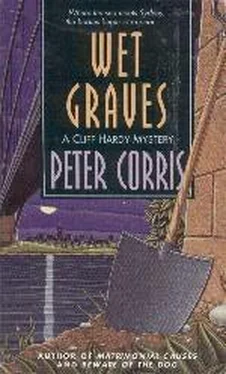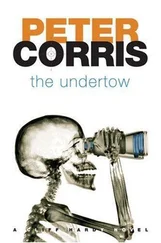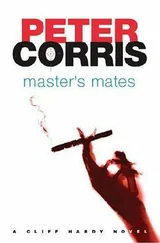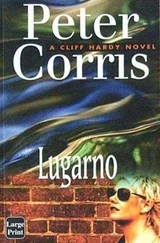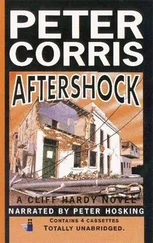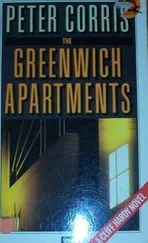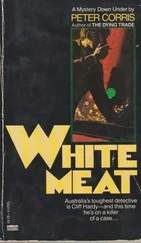Peter Corris - Wet Graves
Здесь есть возможность читать онлайн «Peter Corris - Wet Graves» весь текст электронной книги совершенно бесплатно (целиком полную версию без сокращений). В некоторых случаях можно слушать аудио, скачать через торрент в формате fb2 и присутствует краткое содержание. Жанр: Криминальный детектив, на английском языке. Описание произведения, (предисловие) а так же отзывы посетителей доступны на портале библиотеки ЛибКат.
- Название:Wet Graves
- Автор:
- Жанр:
- Год:неизвестен
- ISBN:нет данных
- Рейтинг книги:5 / 5. Голосов: 1
-
Избранное:Добавить в избранное
- Отзывы:
-
Ваша оценка:
- 100
- 1
- 2
- 3
- 4
- 5
Wet Graves: краткое содержание, описание и аннотация
Предлагаем к чтению аннотацию, описание, краткое содержание или предисловие (зависит от того, что написал сам автор книги «Wet Graves»). Если вы не нашли необходимую информацию о книге — напишите в комментариях, мы постараемся отыскать её.
Wet Graves — читать онлайн бесплатно полную книгу (весь текст) целиком
Ниже представлен текст книги, разбитый по страницам. Система сохранения места последней прочитанной страницы, позволяет с удобством читать онлайн бесплатно книгу «Wet Graves», без необходимости каждый раз заново искать на чём Вы остановились. Поставьте закладку, и сможете в любой момент перейти на страницу, на которой закончили чтение.
Интервал:
Закладка:
He grinned. With his crewcut hair sticking up and his trim body wrapped in a smart, Asian-print dressing-gown he looked like a fit fifty-year-old. “Used to be from worry, when I agonised about business twenty-four hours a day. Now, I don’t know. I think I just like it. I get up for an hour or so most nights. It’s quiet, and you can think clearly.”
We went through to the kitchen and he put water on to boil. We sat on stools and waited. “How did it go tonight?”
“Good. Ray comes through, doesn’t he?”
“Always. He’s sound. Pat’s always worried that he or Chris’re going to show signs of going to the bad, like their father. I tell her it won’t happen and I reckon I’m right.” The water boiled and Paul made tea for himself and instant coffee for me. The shower was still running.
“Ray came up looking like a Channel swimmer,” I said. “Grease in the water.”
Paul shook his head. “It’s a crying shame. You wouldn’t believe how dirty the harbour and the coast have got. Well, you have to believe it, after all the publicity. But I’ve seen it happening over the years. Couldn’t get anyone to listen-councillors, politicians. Hopeless bloody bunch.”
I sipped the hot, milky coffee and felt it blend warmly and comfortingly with the brandy in my stomach. My mind was tired but still working sluggishly on the case. “I don’t suppose your father’s still alive, Paul? I need to…”
Guthrie snapped his fingers and jumped off the stool. “That’s what I have to do. That’s why I got up. Hang on.”
I drank some coffee. The shower stopped running. Guthrie came back carrying a thick book. “You only missed Dad by a few years,” he said. “Lived into his nineties. After you left I got to thinking about the bridge and all that. I hunted around and found this.” He held out the book. “It’s Dad’s scrapbook on the bridge. He kept it for years, from the time he captained the tug and until after the opening. Thought it might be useful.”
The scrapbook was an old-fashioned seaman’s log with clippings and papers pasted to the leaves. It was only about an inch wide at the spine but four inches wide at the edges of the leaves. Some of the clippings had been too big for the page and were folded over; others had frayed and torn edges. I turned over a few pages and saw newspaper reports on the men and the work. “It could be very useful, Paul. Can I take it away? I’m too bushed to…”
“Of course, of course. Take it. Give it back when you’ve finished your enquiry. That’ll force you to come and see us again. Here, I’ll get you something to put it in.”
He rummaged in the cupboard for a plastic bag and found one just as Ray walked into the kitchen. “Shouldn’t use those things, Paul,” he said. “You should see them in the harbour. It’s chocka.”
Guthrie straightened up and handed me the bag. “I know. I know.” He glanced at Ray. “You OK, son?”
Ray nodded and unscrewed the lid of the coffee jar. “Reckon I can get the pictures developed later tomorrow. I mean today. You know.”
I put the scrapbook in the plastic bag and tied its handles together. “Thanks. I’ll give you a ring.”
Paul Guthrie said, “You’ve found your client’s father then, Cliff?”
“Odds on.”
“Poor woman, but it’s better to know than to wonder.” He was speaking from experience, as a man who’d had a time of wondering whether his stepson was alive or dead.
I shook hands with both of them and left, carrying the scrapbook encased in polluting plastic. It sat beside me on the passenger seat as I drove home. Live to ninety and leave behind scrapbooks on your big jobs and the love and respect of a son, I thought. Not bad, Captain Guthrie, sir. Not bad at all.
I woke up late and eased into the day gently. A long, hot shower got rid temporarily of the ache in my kicked ribs and helped with the stiffness that had come from positioning a forty-plus-year-old body on a boat on Sydney harbour on a cold winter night. My cuts and bruises were healing well, though-maybe it was the sea air. For want of better company, I’d taken the scrapbook to bed with me. I hauled it out to read while I drank several cups of coffee. I threw the plastic bag in the rubbish bin, wondering vaguely where it would end up.
Inside the cover Paul’s father had written: ‘David Alexander Guthrie, MM, tug Hercules, 1926-32’. What followed was a personal history of the building of the bridge. Captain Guthrie had taken photographs of his tug at work and the various stages of bridge construction. There were also pictures of the quarry at Moruya and the fabrication workshop Paul had spoken about. These were glued into the book and captioned. Letters from the captain’s employer were similarly attached. They replied to complaints about the safety of the barge moorings and the suitability of the tackle used to lift the materials aloft. Faded blue carbon copies of Guthrie’s letters testified to his continued concern. To judge from the replies, he got little satisfaction. There were death notices for some of the workers killed, and a clipping from the Labor Daily, which Guthrie had annotated ‘Lang paper’ for 10 February 1932: ‘James Campbell had been engaged in dismantling the scaffolding near the top of the pylon. A strong gust of wind moved the beam on which he was standing, and he was hurled into space. Horrified watchers in the streets below saw him shoot out from the pylon, turning over and over as he clutched wildly for something to stay his flight… He fell to the ground through the open structure near the footway.’
It wasn’t all gloom and doom. Guthrie had recorded the great moments, such as the closing of the arch and the hanging of the last section of the deck. There were newspaper photographs of the opening ceremony and a couple of the captain’s own creditable efforts. One shot, captioned ‘Self amp; Hercules’ showed a stocky man with a pipe jutting from his jaw standing at a ship’s wheel. Not enough of his face was visible under the cap and beard to mark a resemblance to Paul Guthrie, but the stubborn, almost aggressive stance was unmistakable.
I leafed through the book, fascinated by the material and almost forgetting why I was in possession of it. A photograph of sober-looking men in high collars and dark suits brought me back to the present. Here they were-the builders: Barclay, Glover, Bradfield, Ennis, Samuels, Madden, Booth, Bondil-more than a dozen of them with each man’s function neatly assigned to him. Most of the faces were moustached or bearded. Bradfield, generally considered the father of the bridge, was among the clean-shaven brigade. I checked off the names against the areas of operation. Joseph Samuels was the proprietor and manager of the foundry attached to the fabrication workshop. Reginald Booth was the Director of Public Works.
Captain Guthrie had circled in red a clipping that contained a statement from Lawrence Ennis, a chief of one of the major engineering firms involved in the job. It might not have been the statement Paul Guthrie remembered, but it was pretty close: ‘Every day those men went onto the bridge they went in the same way as a soldier goes into battle, not knowing whether they would come down alive or not.’
I poured my third cup and settled down to accumulate my notes and materials on the Madden case. I had the scrapbook, photocopies, my own notes. By the end of the day I hoped to have some photographs. Maybe I’d found Brian Madden, maybe not. It was a tricky matter, determining where my responsibility began and ended. If I reported everything to the police, and they arranged to raise the canvas-wrapped bodies from the harbour, the story, in all its ghoulish detail would get out. All the names involved would be published and the careers of the bridge builders and their families exposed to scrutiny. Somehow I didn’t think Louise Madden would like that. And there was no guarantee that her father was one of the victims.
Читать дальшеИнтервал:
Закладка:
Похожие книги на «Wet Graves»
Представляем Вашему вниманию похожие книги на «Wet Graves» списком для выбора. Мы отобрали схожую по названию и смыслу литературу в надежде предоставить читателям больше вариантов отыскать новые, интересные, ещё непрочитанные произведения.
Обсуждение, отзывы о книге «Wet Graves» и просто собственные мнения читателей. Оставьте ваши комментарии, напишите, что Вы думаете о произведении, его смысле или главных героях. Укажите что конкретно понравилось, а что нет, и почему Вы так считаете.
